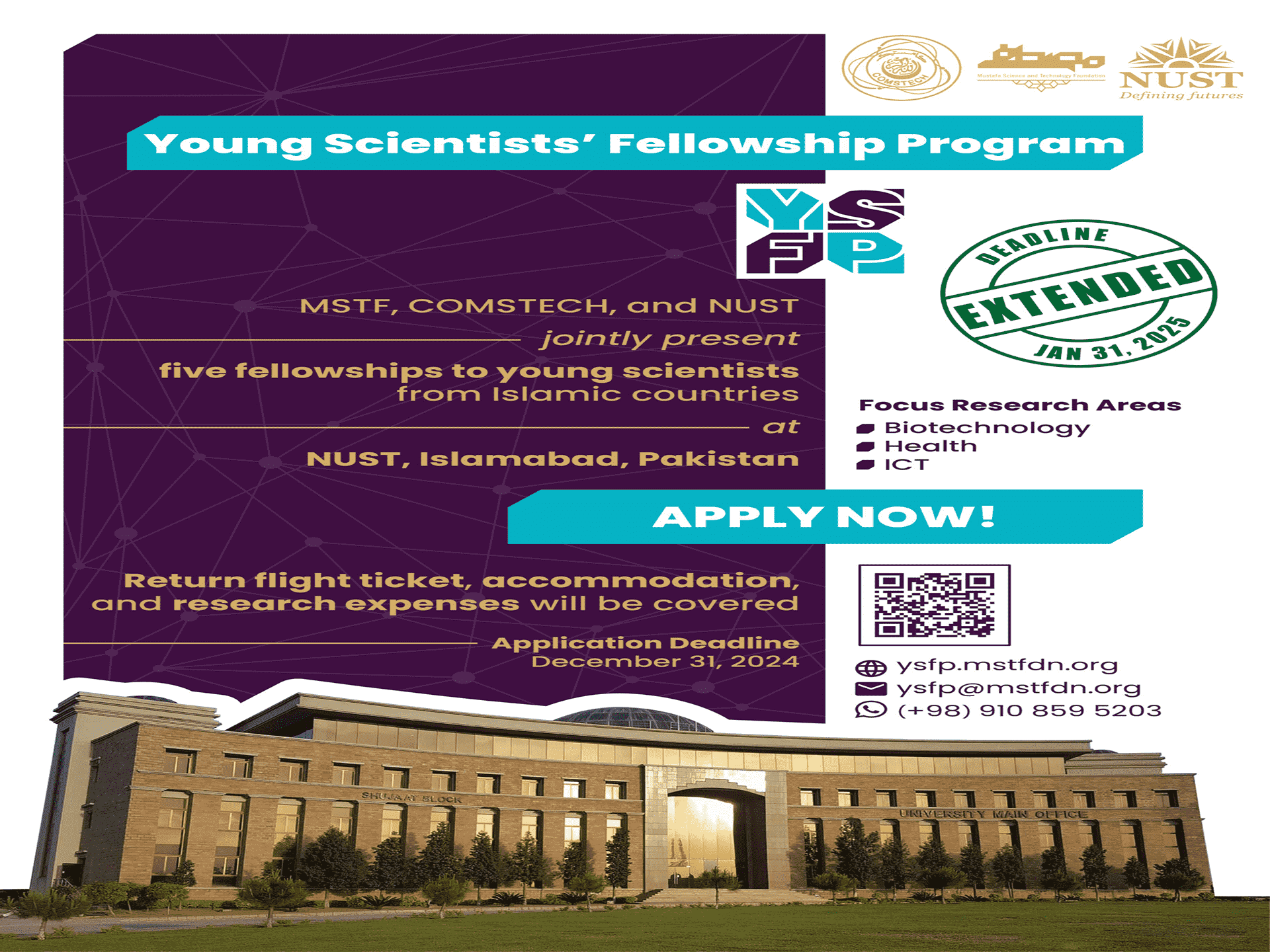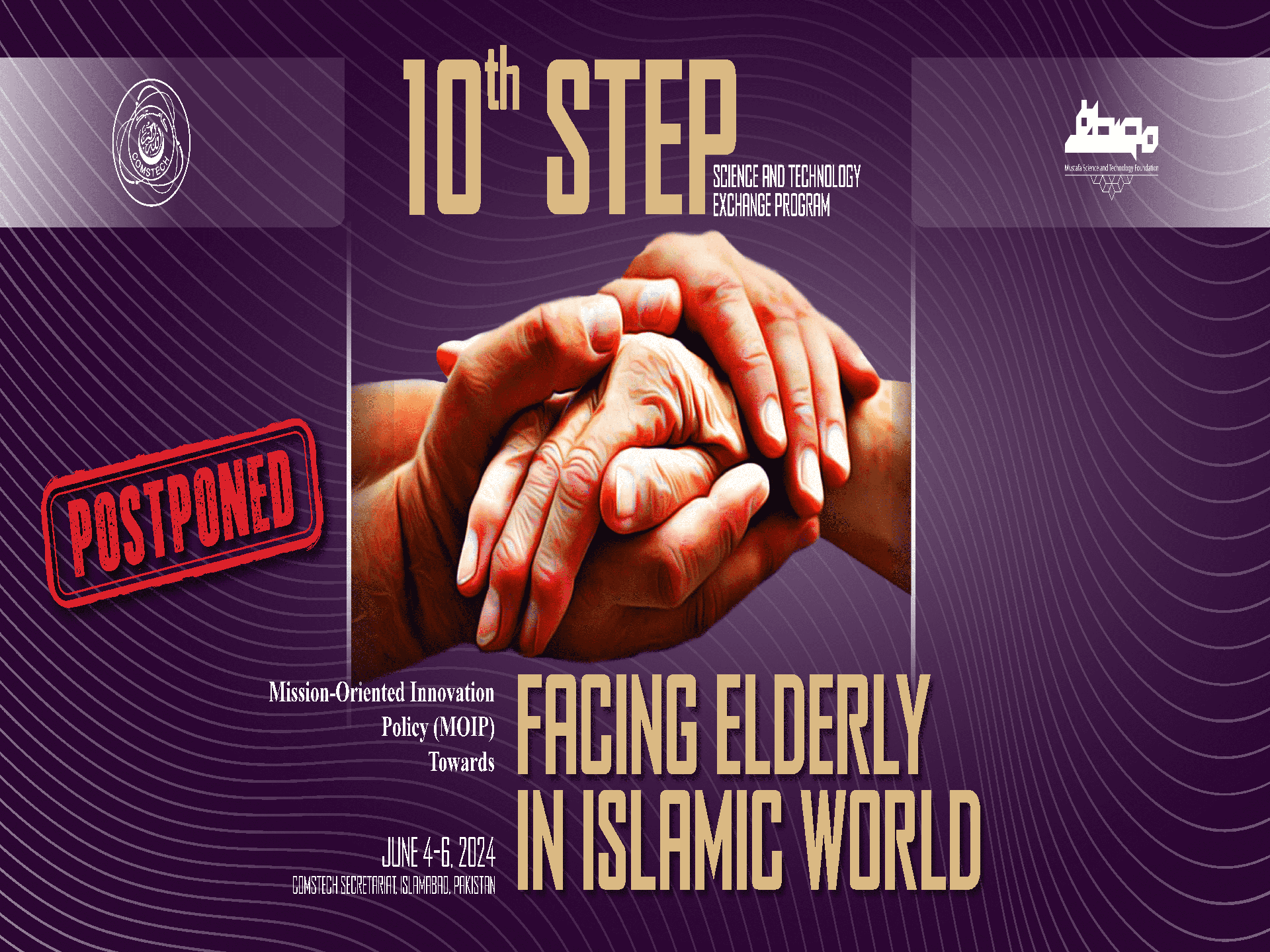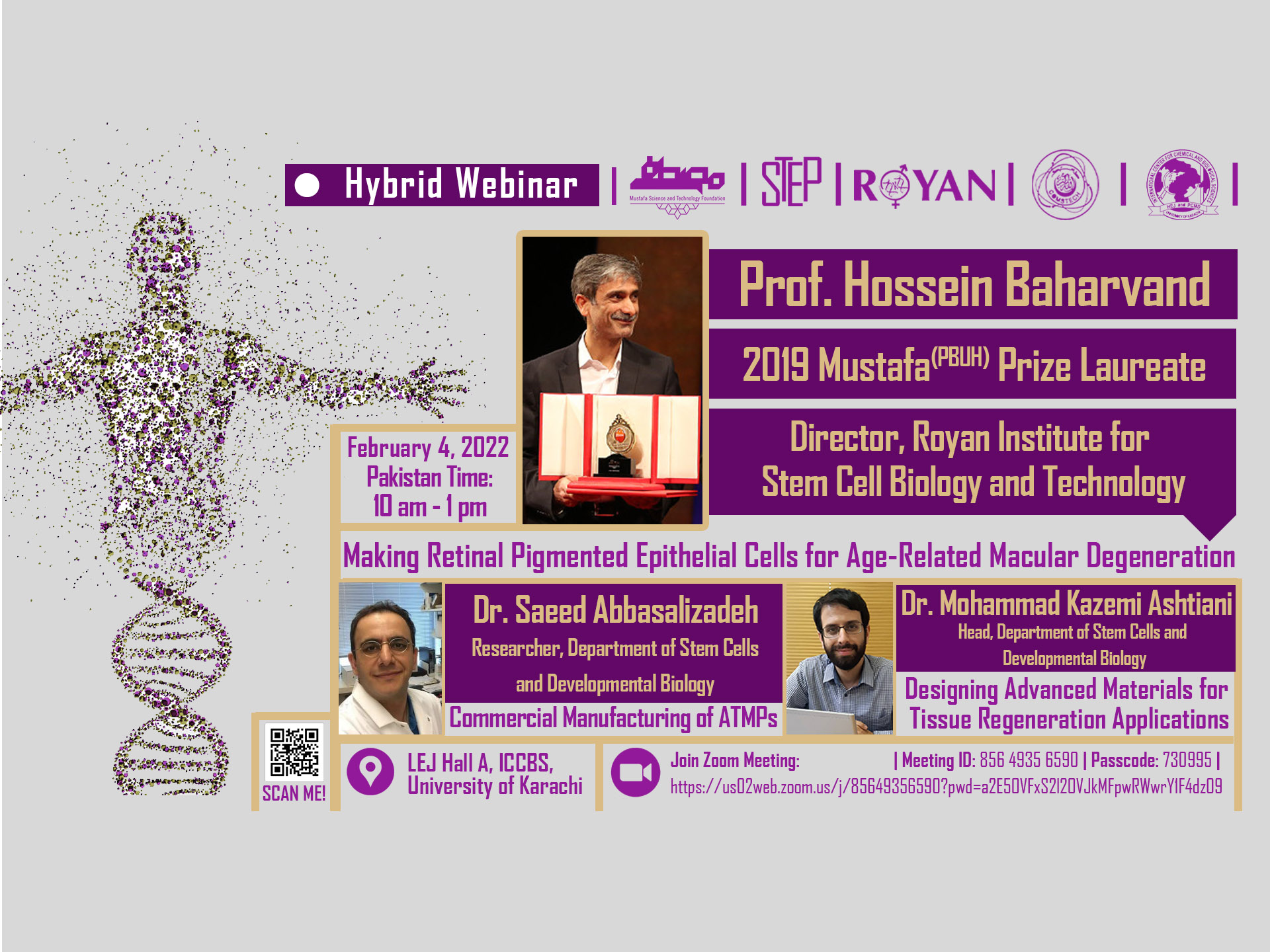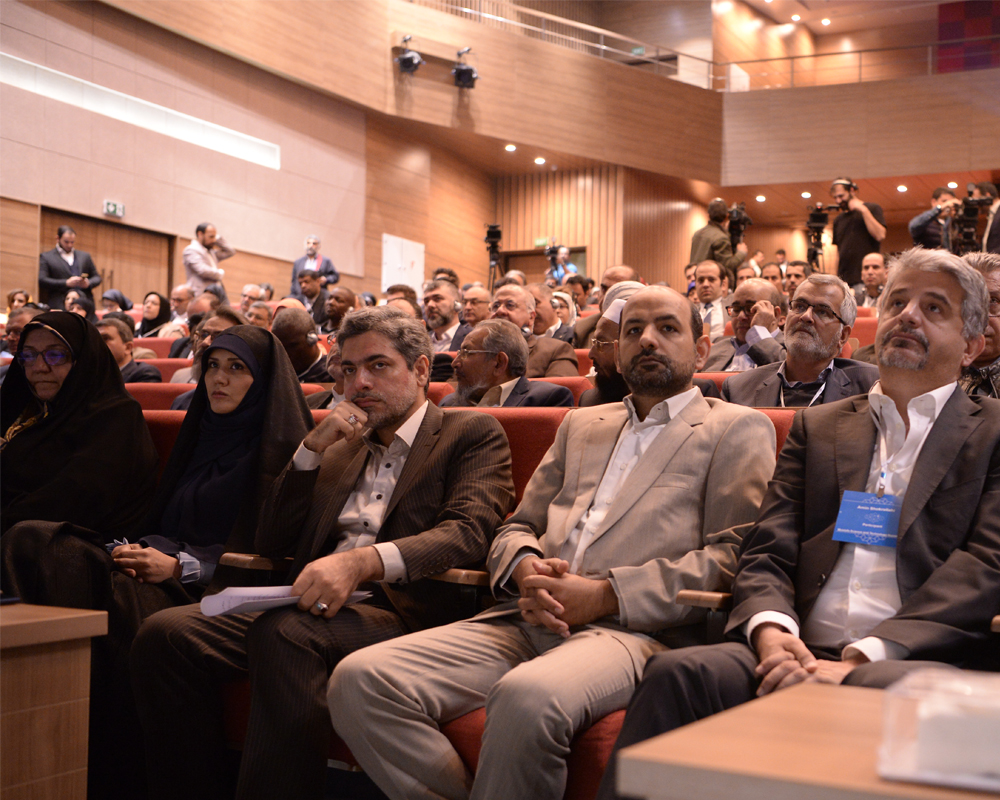TOP STORIES
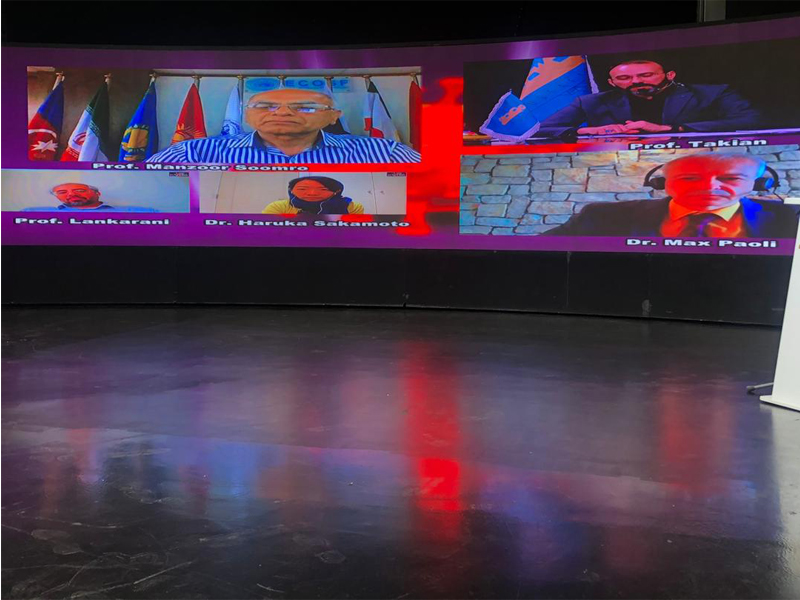
Senior officials virtual roundtable: What lies ahead after Coronavirus?
28 May. 2020
The meeting of senior officials was composed of Max Paoli, program coordinator of The World Academy of Sciences (TWAS), Italy; Manzoor Hussain Soomro, founder president of ECO Science Foundation in Pakistan; Haruka Sakamoto, assistant professor at the department of Health Policy and Management, Keio University, Japan; Mustafa Ghanei, Iran's Head of Scientific Committee of Coronavirus Combat and Prevention Headquarters; and Kamran Bagheri Lankarani, Faculty member at Shiraz University of Medical Sciences in Iran. The panel was moderated by Amirhossein Takian, chair of the department of Global Health and Public Policy, Tehran University of Medical Sciences, Iran.
Max Paoli, offered some insightful reflections on post-coronavirus strategies, stating that "we need to look back to look forward," because the past gives us lessons to learn.
"If we look back to history, we see examples of diseases similar to COVID-19. Looking back is absolutely essential. Loss of habitats, biodiversity loss, and zoonotic disease are some examples. Not only history, but also science has done and shown huge amount of work and analysis on zoonotic diseases, pandemics, and their mechanisms," Paoli remarked.
Paoli also believed that sustainable development and harmony with nature, in addition to preparedness and planning for the second wave of COVID-19 are extremely important.
Speaking of Italy, Paoli mentioned three major points to consider while looking at the high rate of cases in the country.
"We need to think about culture. Italian culture does not respect governmental rules. A lot of people disrespect the rules," he said.
The second point is that "we are paying for the low budget in the health sector over the past two years. Germany has about five times more emergency beds than Italy. German health facilities are way better."
The third point is the "uneven distribution of industrialization in Italy. Pollution in the north of Italy where industry abounds, has caused many diseases. Therefore, people living in those areas have a greater risk of contracting COVID-19."
The lessons learned are "providing better training of people, providing school-wide education, and focusing on politics and economics," Paoli stated.
The next speaker Manzoor Hussain Soomro from Pakistan addressed "COVID-19 and Future STI Policy: decisions for sustainable development."
"Coronavirus has exposed the fragile limit of healthcare facilities around the globe. Almost all the countries worldwide are under the state of emergency," Soomro noted.
"Iran is much challenged due to being under US-imposed sanctions. Nevertheless, the country has come up with innovations to overcome the challenges. Pakistan has also done reasonably well in this regard," Soomro observed.
Regarding the strategies that are needed to be taken in case of a second wave of COVID-19, Soomro stated that "there is a need to review, update, and realign science policies, with more emphasis on stronger collaboration among countries and regions."
"Depending on their weaknesses and strengths, countries need to provide wider education for the public especially for young people. Increasing the scientific literacy of public on a large scale really matters. There are people who either do not know the mechanism of Coronavirus spread or do not believe in it," he asserted.
Soomro therefore suggested “the development of vaccine and production of supplies and PPEs.” He also stressed the importance of public education and awareness.
Haruka Sakamoto discussed Japan's strategies for dealing with COVID-19.
Pointing to Japans' number of deaths per million, which is 6.69 percent, Sakamoto stated that "Japan put priority on preventing the cluster causing another infected cluster, and did not put much emphasis on sporadic cases."
The three strategies of “testing, contact tracing, and isolation policy" were observed in Japan.
Japan conducted PCR testing at local public health centers, not at clinics/hospitals.
"Testing targets were mainly those who were part of the cluster and their close contacts," Sakamoto maintained.
According to Sakamoto, to prevent a cluster occurring at healthcare facilities, prevent nosocomial infections, protect healthcare professionals, and to use PPE effectively, people without any underlying conditions were also encouraged to stay home at least 4 days.
The main approach for the 2nd and 3rd waves is "Cluster approach" combined with "capturing mild symptoms," "Isolation," and "contact tracing," she remarked.
She also said that protecting high-risk population such as the elderly is of high importance for Japan.
So, "through the use of LCT and other means, it is possible to reduce the risk of infection among the elderly, while enabling them to participate in social activities."
Sakamoto added that social isolation and lack of social participation puts the elderly at higher risk of depression.
Mustafa Ghanei also discussed the lessons learnt from the first wave of Coronavirus.
He stated that based on the experiences "it is a bad strategy to ask people to go to hospitals and get tested. They should be at home and contact medical staff and counselors via phone and, if necessary, go to the nearest hospital."
The second lesson, according to Ghanei, is "to be self-sufficient in producing the diagnostic kits.
"Now we are capable of producing kits in Iran. We also produce 30 mechanical ventilators every day. During the epidemic we have to be self-sufficient," he added.
The third lesson is "to have a scientific committee which provides data screening and regular updates, and gives guidelines to hospitals across the country."
Bagheri Lankarani also addressed the future plans and the strategies that could have been taken to avoid the destructive effects of the pandemic.
Regarding vaccine production and Operation Warp Speed, the vaccine development project announced by President Trump, he stated that "there are immense public and political pressures to develop a new vaccine, but it takes years, not months."
Lankarani also pointed to the increasing importance of communication. He stated that communicating plans must be integrated with overall emergency response plans.
"Communication must not be treated as the secondary concern and response plans will not work unless they are effectively communicated," he observed.
News Source: MSTF Media



